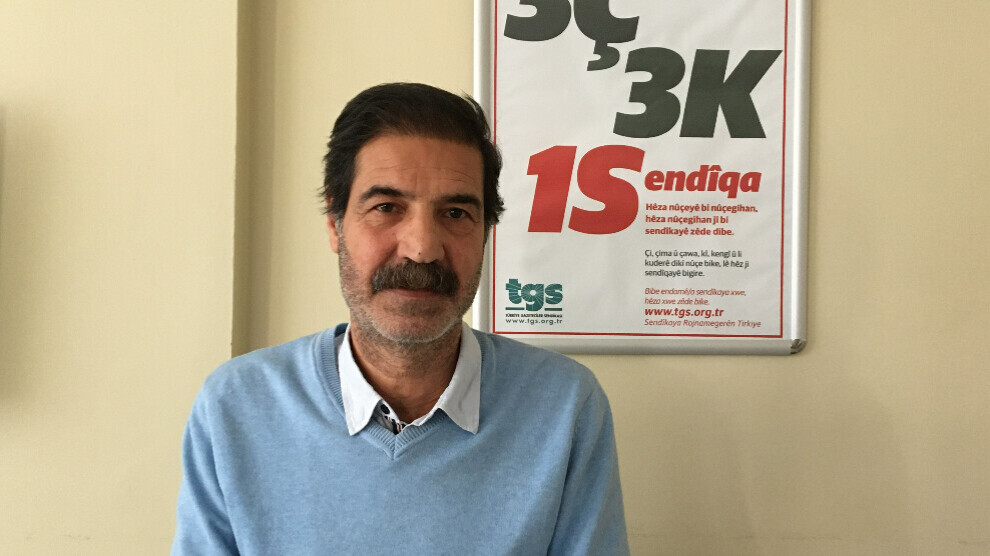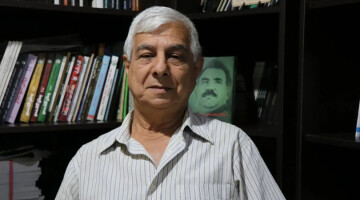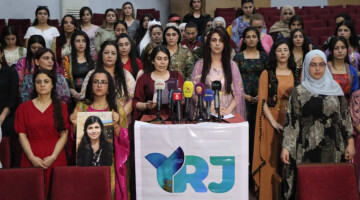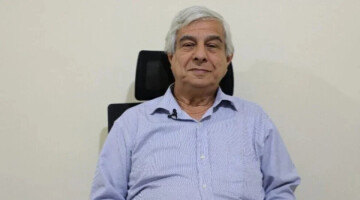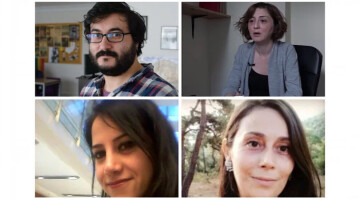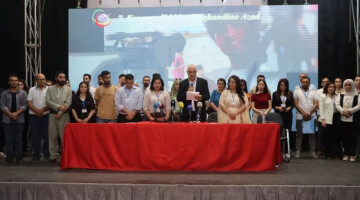The law, which the AKP-MHP alliance calls "Disinformation Law", but which will actually censor the press and media and actually impose self-censorship, aims to narrow the scope of journalism as much as possible. The fact that this law is being discussed and brought to the Parliament in a process where the pressures against the Kurdish press are on the agenda, is interpreted as an attack on the public's right to receive information in general terms.
Faruk Balıkçı, who has been working as a journalist in Amed for more than 30 years in different media, talked to ANF about the censorship law and similar previous de facto obstructions and bans.
Balıkçı emphasized that if the censorship law is passed, the working conditions of journalists will be badly affected. Pointing out that freedom of the press is one of the indispensable conditions for democracy in a country, Balıkçı noted that in a country where the press is not free, democracy is either languishing or dead.
Journalism will be limited by this law
Balıkçı said: “We were faced with de facto obstacles. We suffered violence and journalists were killed by the Jitem-contras, the invisible face of the state. However, there was no situation where journalists were imprisoned and journalism was limited by law, as is the case today. Even until 2015, many European journalists from Europe or whose representatives were in Istanbul were coming to the Kurdish territory to report on the Kurdish issue. When they did not come, they asked a local journalist for news about the Kurds. However, European journalists were also affected by the increasing pressure on the press after 2015, and they no longer come to the Kurdish areas. At the same time, they began to reduce writing about this area.”
Journalists will increasingly leave their job
Underlining that the government wants society to have one voice and one thought, with the censorship law, Balıkçı said: “We are already experiencing censorship and self-censorship, but now a thick wall is being built between the public and the truth. It seems that we will be faced with a situation where more journalists will be thrown into prison. I think that the arrest of 16 of our colleagues in the past few days is a sample of what the new law will do. Journalism will be questioned, news activities will be blocked and journalists will be rendered dysfunctional. In concrete terms, either the prisons will be filled with journalists or the number of people leaving the profession will increase.”
No democracy if information is censored
Balıkçı said that there can be no talk of democracy in a country where the news of journalists does not circulate freely.
Balıkçı continued: “The political power is trying to control not only the fields of activity of journalists, but also their social media networks. It draws the limits of this with the law. This law will be used as a stick by the government one year before the elections. The law to be enacted will also destroy partial freedoms with more pressure and censorship.”
Turkey will turn into a prison for journalists
Referring to the attacks against the Kurdish press, Balıkçı concluded his speech with the following words: “Repression was carried out before. The closure of Kurdish television, newspapers and radios was a part of this. Everyone knows that there are journalists who have been unlawfully detained and arrested for reporting on the Kurds. Most recently, 16 of our colleagues were arrested. In fact, this unlawfulness against the Kurdish press will be legalized with the law being passed. In other words, while the Kurdish press is already experiencing all this pressure, now this will spread to the general public. Turkey will turn into a prison for journalists. Its reflection on society will be with the deprivation of the freedom of information of people. The government wants to break the pen of journalists.”

